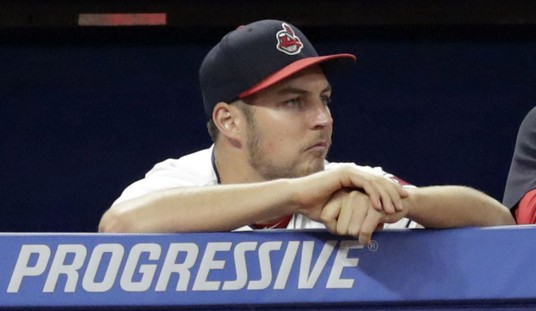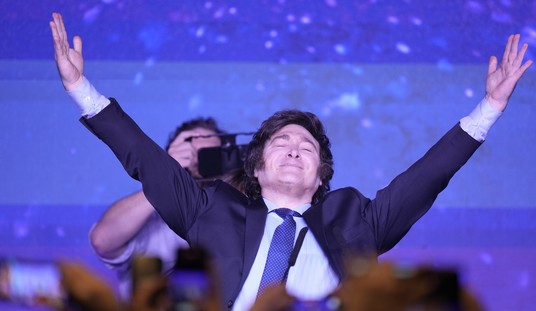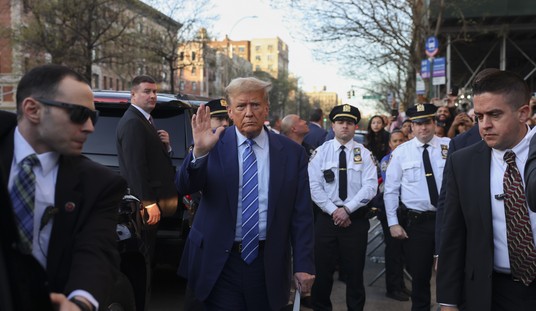Last May, I linked to an interview with Lionel Chetwynd, the producer of last year’s Ike: Countdown To D-Day, starring Tom Selleck in the title role.
Chetwynd grew up in Montreal, and at one point, he wanted to produce a film on the allies’ attack on the French town of Dieppe in 1942. It was a sort of prototype D-Day, except that it was a horrific failure, resulting in the deaths of over 3,000 Canadian troops. (Yes Virginia, there was a time when Canada could field a large army.)
Chetwynd tells an amazing story of Hollywood’s response to the idea:
Many years later, when Chetwynd was a successful Hollywood writer specializing in historical dramas, he told the Dieppe story during a Malibu dinner party — as a sort of tribute to the men who died there so people could sit around debating politics at Malibu dinner parties. One of the guests was a network head who asked Chetwynd to come in and pitch the story.”So I went in,” Chetwynd told me, “and someone there said, ‘So these bloodthirsty generals sent these men to a certain death?’
“And I said, ‘Well, they weren’t bloodthirsty; they wept. But how else were we to know how Hitler could be toppled from Europe?’ And she said, ‘Well, who’s the enemy?’ I said, ‘Hitler. The Nazis.’ And she said, ‘Oh, no, no, no. I mean, who’s the real enemy?'”
“It was the first time I realized,” Chetwynd continued, “that for many people evil such as Nazism can only be understood as a cipher for evil within ourselves. They’ve become so persuaded of the essential ugliness of our society and its military, that to tell a war story is to tell the story of evil people.”
This week, Mark Steyn reprints his 1998 review of Saving Private Ryan, which noted similiar motives from the filmmakers who made Ryan as Chetwynd discovered when he pitched his Dieppe script:
Purporting to be a recreation of the US landings on Omaha Beach, Private Ryan is actually an elite commando raid by Hollywood and the Hamptons to seize the past. After the spectacular D-Day prologue, the film settles down, Tom Hanks and his men are dispatched to rescue Matt Damon (the elusive Private Ryan) and Spielberg finds himself in need of the odd line of dialogue. Endeavouring to justify their mission to his unit, Hanks’s sergeant muses that, in years to come when they look back on the war, they’ll figure that `maybe saving Private Ryan was the one decent thing we managed to pull out of this whole godawful mess’. Once upon a time, defeating Hitler and his Axis hordes bent on world domination would have been considered `one decent thing’. Even soppy liberals figured that keeping a few million more Jews from going to the gas chambers was `one decent thing’. When fashions in victim groups changed, ending the Nazi persecution of pink-triangled gays was still `one decent thing’. But, for Spielberg, the one decent thing is getting one GI joe back to his picturesque farmhouse in Iowa.Saving Private Ryan isn’t an anti-war film in the sense that, say, principled pictures like All Quiet on the Western Front are. Instead, as usual with Spielberg, it’s his take on his own childhood: it’s an anti-warfilm film. As far as the real war’s concerned, it seems to be too much for him to comprehend. In a few coherent interviews, he’s suggested that the war was worth fighting because. it produced the babyboomers. But it’s flattering him to pretend he has any view on the war one way or another: with his customary lack of imagination, he simply cannot conceive of a world where men are prepared, quietly and without fanfare, to die for their country. Perhaps he has a point: in a narcissistic Clinto-Spielbergian culture, it’s hard to see what would now drive the general populace to risk their lives.
In that sense, Saving Private Ryan is the antithesis of Casablanca: the problems of one human being are what count; it’s all those vast impersonal war aims that don’t amount to a hill of beans. You’d have more confidence in this general proposition if Spielberg weren’t so wretchedly inadequate at conjuring vivid human beings: Hanks’s unit is a perfunctory round-up of singletrait types – one Jew, one coward, all very unmemorable. The nearest to a real human being in the film is General Marshall, not just because he’s played by the sturdy Harve Presnell but because Marshall is a real human being and the director has something to latch on to. Otherwise, Spielberg’s approach to making drama is as impersonal as Ike moving pins around the map in the operations room.
Contrast this with the fine early ’60s D-Day film, The Longest Day. No wonder the post-Class of ’72 Hollywood can’t produce a decent film about 9/11 or America’s liberation of Afghanistan and Iraq. If World War II wasn’t worth fighting, why would any war since?Update: Gregg Hanke of the Impacted Wisdom Truth blog emailed me to mention that there have been several effective television films on 9/11:
Actually, there IS a very good movie about 9/11 out there. It was written and produced by…Lionel Chetwynd, the same chap you cite in your “Deconstructing Private Ryan” post as the producer of the Ike D-Day film. It is entitled DC 9/11: Time Of Crisis. Chetwynd had unprecedented access to the administration during the writing phase of the project. He interviewed President Bush, Ari Fleisher, and a host of others he names in the director’s commentary track on the DVD.The movie stars Timothy Bottoms, whom bears a decent resemblance to GW Bush. The other actors are accomplished character actors, many of whom I am sure you have seen on television and film. My personal favorite was George Takei (Sulu from Star Trek) playing Norm Mineta. Call me a kid, but I very badly wanted Bottoms (as Bush) to order Sulu (Takei/Mineta) to send a volley of photon torpedoes against Usama Bin Laden. Fortunately, as the movie explains, Bush was not about to send cruise missiles (or photon torpedoes, for that matter) against an empty tent in the desert.
The actors achieve varying degrees of success in their portrayals. The actor that plays General Tommy Franks only has a passing resemblance to Franks, but the voice is a spot-on match. The actors portraying Laura Bush, Ari Fleisher, and Donald Rumsfeld do outstanding jobs, in my opinion-not to mention Bottoms excellent portrayal of Bush.
I also have CNN’s DVD of their coverage of the day’s events, America Remembers.
If you watch the first forty or so minutes of the CNN DVD, then watch DC 9/11: Time Of Crisis, you will see a lot of the CNN coverage interspersed in DC 9/11, which puts the external events in perspective with the depiction of the internal events taking place within the Bush administration. That is one of the best things about this film; its ability to give an insiders perspective to all us voyeurs mesmerized by the televised unfolding of these visually spectacular events.
All of that said, the movie does at times play as a love letter to George W. Bush. And though that is a criticism, it is only a small one. The overall effect was hypnotizing to me; the ending was a nice bit of editing that still gives me goose bumps even as I type this. I will not spoil that for you, but you can rent it at Blockbuster if you have not already seen the movie. It originally aired on Showtime.
He’s right, and Hollywood’s television productions have been somewhat more even-handed than its film division. But movies are still considered the top of the pecking order in Tinsel Town, and its telling that the only bigtime productions that I can think of that can be said to reference 9/11 directly are Michael Moore’s odious Fahrenheit 9/11, and possibly Trey Parker and Matt Stone’s Team America. James Lileks wrote last year that Hollywood’s film productions are deep into “the Golden Era of beating around the bush“.In an earlier era, I’d be able to see Chetwynd’s film about 9/11 (and his Ike movie as well) at my local theater–and I’d have happily paid money to do so. While a 50 inch-plus TV and surround sound can produce quite an impact at home, nothing beats seeing an image on a huge film screen. Hollywood knows this better than anybody, which is why, for the reasons that Lileks noted, that it will probably be sometime–if ever–before a dramatic movie about 9/11 hits the theater.









Join the conversation as a VIP Member